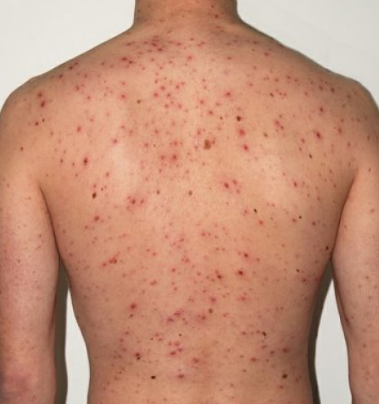Researchers at City of Hope have identified a new molecular target for treating pancreatic cancer and reported on a series of preclinical studies and the first clinical evidence indicating the potential for a therapeutic strategy that they say could form the basis for future clinical trials targeting replication stress in pancreatic cancer.For their study, led by Mustafa Raoof, MD, City of Hope assistant professor of surgery, cancer genetics, and epigenetics, the researchers focused on transcription-replication conflicts (TRCs), which occur when the mechanisms responsible for gene expression and genome duplication collide. The clash disrupts cells’ ability to read and copy genes, leading to replication stress, a frequent phenomenon in pancreatic cancer.
The added stress causes cells to make errors copying their DNA, enabling cancer to gain a foothold and spread.In their newly published paper, the team reported that two chemorefractory pancreatic ductal adenocarcinoma (PDAC) patients treated using a TRC-targeting molecule AOH1996 demonstrated up to 49% tumor shrinkage in hepatitis metastases.“Transcription-replication conflicts are an important vulnerability of pancreatic cancer,” said Raoof.

“Our study is the first to confirm proof of concept for whether exploiting this chink in cancer’s armor could provide an effective therapeutic target for patients.” Raoof is senior author of the team’s published paper in Gastroenterology, titled “Therapeutic Targeting of Oncogene-Induced Transcription-Replication Conflicts in Pancreatic Ductal Adenocarcinoma.”PDAC is one of the deadliest human cancers worldwide because it evades most treatments.
With few therapeutic options, 90% of these patients don’t survive beyond five years. The new approach reported by Raoof and collaborators offers the potential for transforming the genetic culprit behind PDAC’s stubborn resistance to treatment into a therapeutic ally.“In an earlier study, Raoof and colleagues had identified high levels of TRCs as a unique weakness in pancreatic cancers that are driven by a common gene mutation.
“We have previously demonstrated that transcription-dependent replication stress through transcription-replication conflicts (TRCs) is a major mechanism of endogenous replication stress in human PDACs,” the authors wrote. “TRCs may therefore represent a unique targetable vulnerability in human PDAC. Building up this research, the investigators used an experimental drug, AOH1996, which was developed at City of Hope, as a tool to target TRCs and measure clinical responses.
“We evaluated targeting replication stress in PDAC using AOH1996, a bioavailable Proliferating Cell Nuclear Antigen (PCNA) inhibitor,” they stated. “Cancer cells critically depend on PCNA, as evidenced by its high expression in PDAC and its association with tumor aggressiveness and metastasis.” For their newly reported study, the team first tested AOH1996 on a mouse model for pancreatic cancer and on small, lab-grown human organoids.
The scientists discovered that the drug slowed tumor growth, damaged tumor cells without harming healthy tissue, and boosted mouse survival from a median of 14 days to three weeks. Reporting on their in vivo mouse studies, the team stated, “Collectively, these studies provide evidence of preclinical efficacy and safety of TRC targeting using AOH1996 in PDAC.”The team then tested the approach on two patients whose pancreatic tumors had resisted earlier treatments (NCT05227326), finding that the individuals experienced up to a 49% shrinkage in their liver metastases after taking AOH1996 as a pill twice a day for two months.
“Notably, in this study, we provide first evidence of efficacy of a TRC-targeting approach in metastatic PDAC patients, both of whom demonstrated shrinkage of hepatic tumors with AOH1996 monotherapy,” the team stated.Overall, the experimental approach was most effective at killing cancer cells with high replication stress, a common phenomenon that occurs when the KRAS gene goes awry in 95% of patients with pancreatic cancer. “While the KRAS mutation has suggested a strong therapeutic target, pinpointing it in human PDAC has been difficult until now,” said Raoof.
“With inhibitors to mutant KRAS entering clinical trials, resistance is expected. It’s crucial for us to develop new approaches that target dependency on KRAS.”Mustafa Raoof, MD, and team tested an innovative approach on two patients whose pancreatic tumors had resisted earlier treatments.
The patients experienced up to a 49% shrinkage in their liver metastases after taking the City of Hope-developed experimental AOH1996 pill twice a day for two months. Overall, the experimental approach was most effective at killing cancer cells with high replication stress. [Dr.
Mustafa Raoof/City of Hope]Targeting TRCs enabled the scientists to pinpoint only pancreatic cancer cells that experienced high levels of replication stress. “Transcription-replication conflicts are more prevalent in cancer cells than normal cells,” Raoof further commented. “Therapies that interfere with how cells manage their DNA during replication could open up new ways to treat cancer, offering hope for patients who have not benefited from other approaches.
” In their paper, the team concluded, “AOH1996 safely and effectively targets TRCs in preclinical PDAC models, with initial clinical evidence supporting its potential for treating chemotherapy-refractory PDAC. Further clinical development is warranted.”While encouraged by the study’s early results, Raoof emphasized caution in interpreting its findings.
Due to the trial’s small size, scientists will need to pursue larger clinical and biomarker discovery studies to realize the full potential of therapeutic targeting of TRCs. The team acknowledged that their early observations, “..
. underscore the need not only to characterize optimal candidates for AOH1996 but also highlight the importance of studying the effect of AOH1996 in the context of tumor microenvironment.” They added, “Ongoing work is exploring rational combination therapies in combination with TRC-targeting in PDAC.
”City of Hope’s Linda Malkas, PhD, discovered and developed AOH1996, which is exclusively licensed to the biotechnology company RLL.The post Targeted Pancreatic Cancer Therapy Approach Tested in Two Patients, Resulting in Metastasis Shrinkage appeared first on GEN - Genetic Engineering and Biotechnology News..
Health

Targeted Pancreatic Cancer Therapy Approach Tested in Two Patients, Resulting in Metastasis Shrinkage

Transcription-replication conflicts are an important vulnerability of pancreatic cancer, and researchers reported study to demonstrate proof of concept that exploiting this chink in cancer’s armor might provide an effective therapeutic target.The post Targeted Pancreatic Cancer Therapy Approach Tested in Two Patients, Resulting in Metastasis Shrinkage appeared first on GEN - Genetic Engineering and Biotechnology News.













